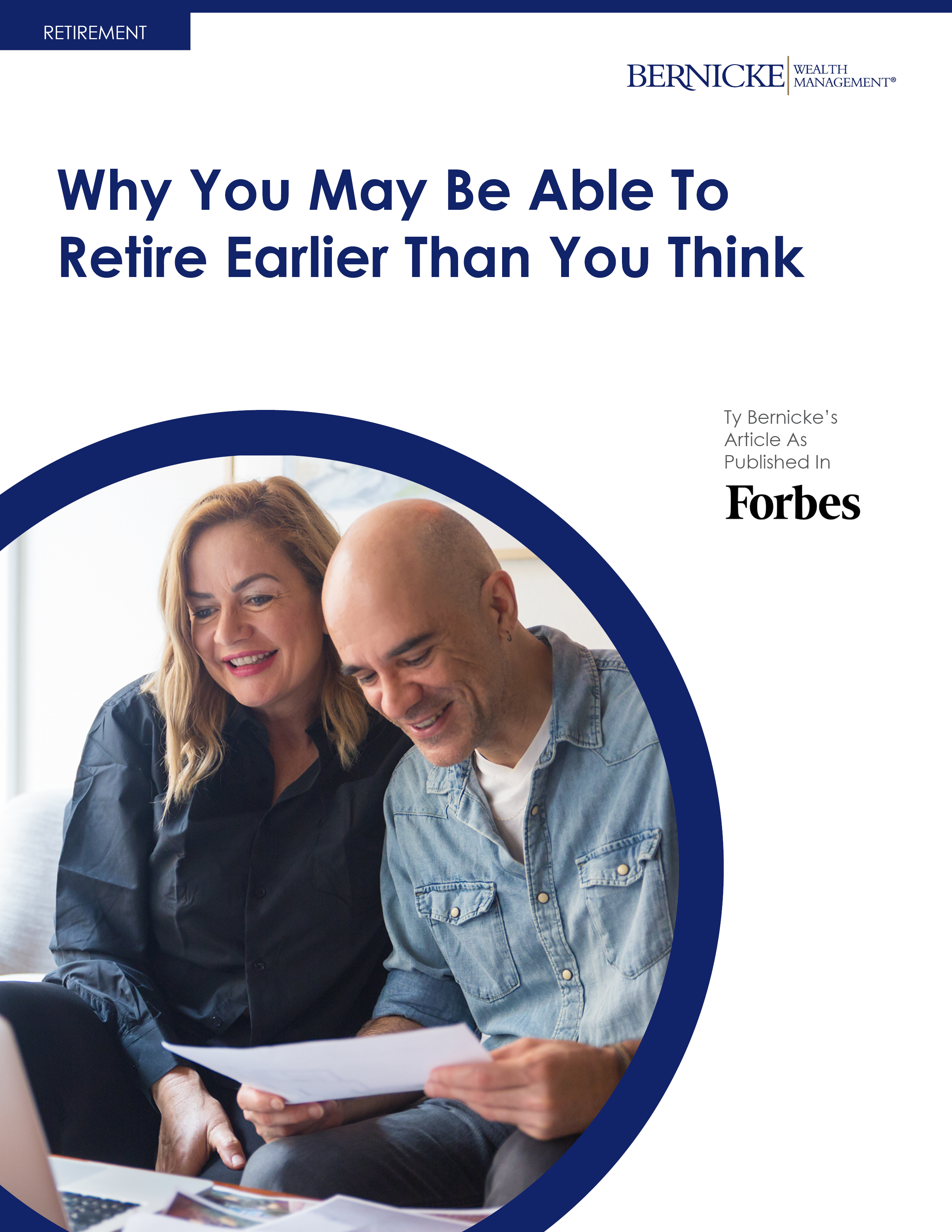

Understanding Emerging Markets As Part Of Your Investment Portfolio
Over the 24 years that I have been in the investment business, there have been periods of excitement surrounding emerging market stocks. Emerging market stocks are domiciled in countries with fast-growing economies that are entering the global scene. Investors frequently view these faster-growing countries as ideal investment opportunities without fully understanding the extent of their investment. Before investing in emerging market stocks, it may be beneficial to understand one of the potential pitfalls associated with this type of investing: concentration risk.


To Minimize Your Taxes, Avoid ‘The Gap’
There are many different variables to consider when selecting an advisor. One important component that determines a financial advisor’s success is how well they can manage investments. Financial advisors need to understand how to minimize taxes related to the investment recommendations they are providing to their clients to manage investments effectively; to help clients minimize taxes, an advisor needs to have a complete picture of their client’s financial situation.


Develop A Tax Sanctuary: The Two Pocket Exchange Strategy
A frequent and costly tax mistake our firm witnesses can easily be avoided by repositioning an investor’s assets. This means shifting your retirement savings from tax-inefficient investments to tax-efficient investments. At our firm, we call this technique “The Two Pocket Exchange Strategy” as it requires shifting assets that investors already own from one pocket to another while receiving a potentially significant tax benefit. The tools to accomplish this are common and the concept is simple, yet it is rare that investors consistently exploit this strategy to its full capabilities.


Early Retirement Health Insurance: What You Should Know
Affordable health insurance is one of the biggest obstacles preventing people from early retirement. The health insurance gap from retirement to Medicare starting at age 65 can be expensive for those who do not have retiree health insurance provided to them by a former employer. The reason health insurance is frequently expensive for many people has less to do with the health insurance and more to do with poor planning.


How Charitable Stacking Can Provide Significant Tax Savings
One of the most common tax mistakes our wealth management firm consistently witnesses can be traced back to poor choices surrounding charitable giving. Many people will make out checks to their favorite charities and then report this information when it comes to tax time. Unfortunately, this simplistic approach can leave tax savings on the table.


Should You Take Social Security Benefits Early?
Over the years, my firm has helped countless individuals and households determine an appropriate Social Security claiming strategy for their unique circumstances. As a result, I have been fortunate to observe how these strategies have affected clients’ retirement. However, it is through these observations that I have realized there is a significant amount of misinformation surrounding the best age to begin taking Social Security income. The choice that may be right for each person is highly dependent on a number of different factors.


Beware Of Mutual Fund Tax Traps
Many stock mutual funds can quietly rob unsuspecting investors by creating unnecessary taxes. This primarily occurs when mutual funds are held outside a tax-favored work retirement plan, individual retirement account or Roth IRA. To help understand why this occurs, it is important to first learn about how stocks that are not owned within a mutual fund are taxed. For simplicity, this article will focus only on federal taxes and will not delve into potential state tax implications.


What Every Adult Child Beneficiary Should Know About Inheriting Assets
Over the past 35 years, our firm has worked with hundreds of people who have inherited investments from their parents. The decisions made with recently inherited assets can have significant permanent tax implications. Understanding the negative consequences and the different available opportunities can have positive benefits that can last years into the future. There are many strategies that can be beneficial to implement when inheriting assets. The following article is designed to share tax minimization techniques that can be implemented following the loss of a parent.


Understand History Before Purchasing Your Next Mutual Fund
There are many variables that investors analyze when either buying or selling assets. One popular technique used to analyze stock mutual funds and exchange-traded funds (ETFs) includes analyzing past performance and using this information as the catalyst to either buy or sell.




